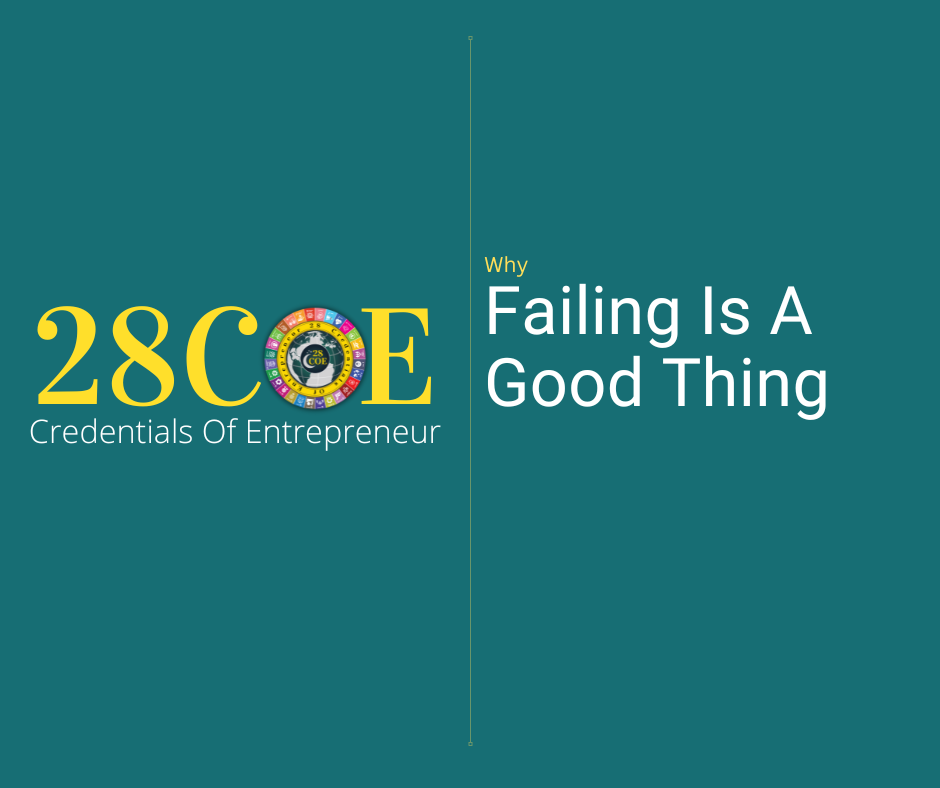In a world that often glorifies success and achievement, it may seem counterintuitive to suggest that failing is a good thing. However, failure is not the end of the road; instead, it can be a powerful catalyst for growth and learning. This blog explores the reasons why “failing” is a good thing and how it can lead to personal and professional development.
Failure as a Learning Opportunity
Failure provides us with valuable learning opportunities. When we make mistakes or encounter setbacks, we are forced to reevaluate our approach, identify what went wrong, and consider alternative strategies. This process of self-reflection and analysis can lead to a deeper understanding of the task at hand and ultimately contribute to future success. In fact, some of history’s greatest innovators and thinkers, such as Thomas Edison and Albert Einstein, embraced failure as an essential part of their journey to success.
Building Resilience
Failing teaches us resilience. It toughens us up for the challenges life throws our way. When we fail and then pick ourselves up to try again, we develop a resilience that enables us to face adversity with greater confidence and determination. This resilience can be a powerful asset in both our personal and professional lives, helping us bounce back from setbacks and maintain a positive attitude in the face of adversity.
Redefining Success
Failure challenges our definition of success. Often, we are conditioned to believe that success means achieving our goals without any hiccups along the way. However, failure can force us to reevaluate what success truly means to us. It encourages us to move away from a narrow, perfectionistic view of success and instead embrace a more holistic perspective that includes the journey, the lessons learned, and personal growth.
Fostering Innovation
Failure is a natural part of the innovation process. Many groundbreaking inventions and discoveries were born from a series of failures. Innovators understand that each failure brings them one step closer to finding the solution they seek. Embracing failure in this context fosters a culture of innovation where individuals and teams are encouraged to take risks and explore uncharted territory.
Overcoming Fear
Fear of failure can be paralyzing, preventing us from pursuing our dreams and ambitions. However, when we experience failure and realize that it’s not the end of the world, our fear diminishes. We become more willing to take risks and step outside our comfort zones, which can lead to personal and professional growth. In this way, failure can be a liberating force that frees us from the shackles of fear and hesitation.
Strengthening Relationships
Failure can also strengthen relationships. When we fail, we often turn to friends, family, or colleagues for support and guidance. This vulnerability can deepen our connections with others, as they see us at our most human and relatable. It reminds us that we don’t have to face challenges alone and that there is a network of people who care about our success.
Conclusion
In conclusion, “failing” is not something to be feared or avoided; rather, it should be embraced as a valuable and necessary part of our journey toward personal and professional growth. Failure provides us with opportunities to learn, build resilience, redefine success, foster innovation, overcome fear, and strengthen relationships. By changing our perspective on failure and seeing it as a stepping stone rather than a stumbling block, we can unlock our full potential and achieve greater success in all aspects of our lives. So, the next time you face a setback, remember that it might just be the push you need to reach new heights.

